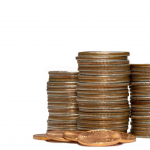 President Donald Trump’s tariffs on $34 billion in Chinese goods took effect early July, and were soon followed by another round of tariffs worth $200 billion. This may not seem like a huge deal to consumers, but unfortunately companies were not prepared for this increase when they were planning their holiday products. Christmas in July reigns true to retailers across the U.S., getting ready for not only Black Friday and holiday shoppers, but also back-to-school shoppers, and these tariff increases threw a wrench into all of their pricing and promotional plans. Companies affected by this tax will be forced to either absorb the extra expense or increase the prices for their customers.
President Donald Trump’s tariffs on $34 billion in Chinese goods took effect early July, and were soon followed by another round of tariffs worth $200 billion. This may not seem like a huge deal to consumers, but unfortunately companies were not prepared for this increase when they were planning their holiday products. Christmas in July reigns true to retailers across the U.S., getting ready for not only Black Friday and holiday shoppers, but also back-to-school shoppers, and these tariff increases threw a wrench into all of their pricing and promotional plans. Companies affected by this tax will be forced to either absorb the extra expense or increase the prices for their customers.
In a press release from the National Retail Federation (NRF), the Vice President for Government Relations David French said, “The latest list of $200 billion of products to be subject to tariffs against China doubles down on a reckless strategy that will boomerang back to harm U.S. families and workers. And the retaliation that will follow will destroy thousands of U.S. jobs and hurt farmers, local businesses and entire communities.”
Products such as apparel, cosmetics, footwear, automotive accessories, electrical components, and home fixtures are just some of the categories that will expect to see a price increase. That is already more than half of the market that will target holiday shoppers. Most consumers will agree that the economy is in great shape, but how will these price increases affect the holiday season and does it mean the economy will start to fall again?
In an article for Forbes, Greg Petro advised, “Consumers will absorb the high costs for goods and differentiated product that they need and want. If the product is not a want or a need, they will pass on purchasing, leading to oversupply. Organizations need to find a partner that enables them to see how their demand will be affected based on the higher price points they’ll have to put in place.”
Impulse buys will decrease, which will have a major impact on holiday sales since most of the time a customer will come into a store expecting to buy a certain item, and if they see something else along the way they will pick it up as well. Now, consumers will think twice before picking up an extra product.
 Phil Levy, senior fellow on the global economy at the Chicago Council on Global Affairs, a nonpartisan organization that provides insight on world affairs, said, “I think this will be a problem for retail. I think they’re going to raise costs and hurt American consumers and hurt businesses that cater to Americans. I think it’s going to hurt and not do much good,” according to Racked. “It’s going to be a big increase to their costs. The president has this misperception that every dollar from a sale of a product [not made domestically] is a loss to the U.S., but that’s just not true. U.S. businesses and consumers have decided this is the best thing they can buy at that price now.”
Phil Levy, senior fellow on the global economy at the Chicago Council on Global Affairs, a nonpartisan organization that provides insight on world affairs, said, “I think this will be a problem for retail. I think they’re going to raise costs and hurt American consumers and hurt businesses that cater to Americans. I think it’s going to hurt and not do much good,” according to Racked. “It’s going to be a big increase to their costs. The president has this misperception that every dollar from a sale of a product [not made domestically] is a loss to the U.S., but that’s just not true. U.S. businesses and consumers have decided this is the best thing they can buy at that price now.”
Petro advises retailers and companies to take action now and be aware of the stock you are preparing for the holiday season. You may not want to take the risk of having too much inventory, or discounting those items just to get them off your shelves, which will eat into margins. The trade war shows no signs of slowing down as we approach the holiday season, so start preparing now.
